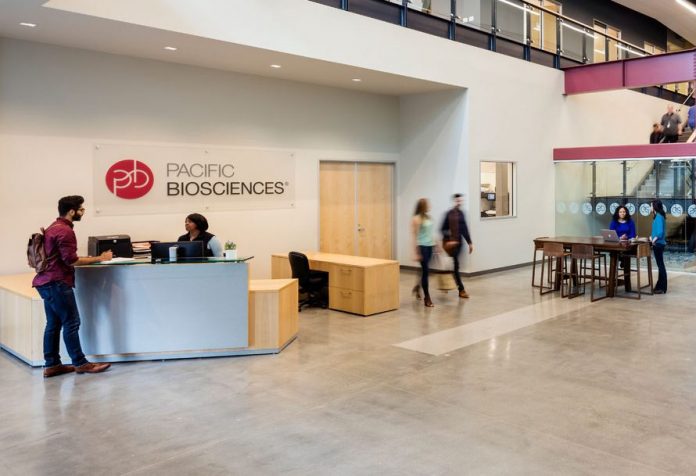
The Hospital for Sick Children (SickKids) in Toronto has announced that it will employ PacBio’s HiFi long-read, whole-genome sequencing (WGS) technology as a diagnostic tool to identify genetic variants that may be associated with undiagnosed medical and development conditions. The collaboration will use samples that have been previously subjected to short-read WGS, but didn’t return a result that identifies a disease-causing genetic variant.
“HiFi sequencing allows us to investigate the entire genome in a way that is not accessible with other technologies,” said Dr. Christian Marshall, clinical laboratory director, Genome Diagnostics and associate director at The Centre for Applied Genomics (TCAG) at SickKids in a press release. “We hope HiFi sequencing will enable us to take an exploratory look at classes of variation and large sections of the genome that were not detected previously, potentially showing unidentified causative genomic variants in these samples.”
Despite the successes of applying short-read sequencing in the clinical setting—most notably the work done by Stephen Kingsmore and team at Rady Children’s Institute of Genomic Medicine (RCIGM), which has pushed the envelope on the time needed to return a result for critically ill newborns—50% of rare diseases with a suspected genetic component remain undiagnosed.
SickKids will use PacBio’s HiFi sequencing platform to re-analyze samples from research participants who are highly suspected of having a genetic condition but have not yet received a diagnosis despite previous genetic testing, including short-read WGS. The focus will be to find out whether HiFi sequencing can detect potential genetic cause of conditions such as autism spectrum disorder and congenital diseases.
“PacBio’s technology has been used to help genetic disease researchers explain mysteries where other technologies could not,” said Edd Lee, Director of Human Genomics at PacBio. “We are excited to support the SickKids team to hopefully uncover the answers they have been seeking.”
The work at SickKids using PacBio sequencers is the latest in a string of collaborations and partnerships PacBio has entered in the past year. Others currently investigating the use of long-read sequencing as a diagnostic tool for the identification of rare diseases include RCIGM for undiagnosed rare diseases; KK Women’s and Children’s Hospital, Singapore for unexplained neurodevelopmental disorders; the Care4Rare Canada Consortium to identify complex unexplained rare disease cases within Canada; and a similar collaboration as the one with SickKids with UCLA Health, among others.
While PacBio technology has historically been used primarily in academic research, the scope of the recent research and collaborations by PacBio are one component of a push by the company to make its technology more accessible and applicable as a diagnostic tool.
According to Christian Henry, CEO of PacBio, two factors are paving the way for the clinical application of the company’s sequencing technology—significant reductions in the cost of sequencing using the company’s technology and the continued movement of leverage whole-genome sequencing in the clinical setting.
“I think we are uniquely positioned to enable whole-genome sequencing in clinical applications and fundamentally enable that move from exomes to whole genomes. Because the short-read technologies don’t do that well on whole genomes. As a result, the cost benefit of going to whole genome versus the exome so far hasn’t panned out and the market for whole genome in the clinic hasn’t really blossomed yet,” Henry told Inside Precision Medicine in an interview late last year.
“That’s how we’re going to push forward: with faster instruments that operate less expensively per unit time. We will leverage the learnings from that into a clinical tool for whole-genome analysis, particularly in areas of any germline application: rare and undiagnosed disease, blood cancers, neurological diseases.”











